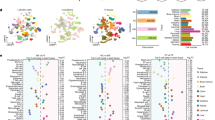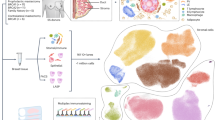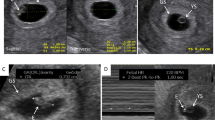Abstract
THE letter of Bianchi and de Bianchi1 prompts us to comment on our own experience in preparing slides for the study of sex chromatin in amniotic membrane cells from rat foetuses. They mentioned in their letter the difficulty of fixing the amniotic membrane of rat foetuses with absolute or 95 per cent alcohol, resulting in coagulation of mucopolysaccharides and shrinkage of the cells.
This is a preview of subscription content, access via your institution
Access options
Subscribe to this journal
Receive 51 print issues and online access
$199.00 per year
only $3.90 per issue
Buy this article
- Purchase on Springer Link
- Instant access to full article PDF
Prices may be subject to local taxes which are calculated during checkout
Similar content being viewed by others
References
Bianchi, N. E., and de Bianchi, M. S. A., Nature, 212, 1593 (1966).
Sanderson, A. R., and Stewart, J. S. S., Brit. Med. J., ii, 1065 (1961).
Author information
Authors and Affiliations
Rights and permissions
About this article
Cite this article
FARÍAS, E., KAJII, T. & GARDNER, L. Technique for Investigation of Sex Chromatin in Amniotic Membrane of Rat Foetuses. Nature 214, 499–500 (1967). https://doi.org/10.1038/214499b0
Received:
Published:
Issue Date:
DOI: https://doi.org/10.1038/214499b0
This article is cited by
Comments
By submitting a comment you agree to abide by our Terms and Community Guidelines. If you find something abusive or that does not comply with our terms or guidelines please flag it as inappropriate.



